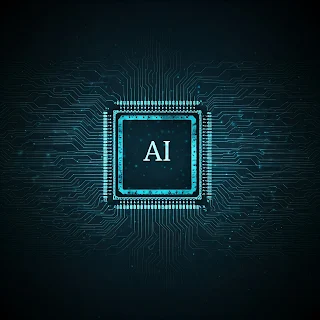AI and Machine Learning: Revolutionizing the World
Artificial Intelligence (AI) and Machine Learning (ML) are no longer just buzzwords; they are driving innovation across industries, transforming the way we live and work. These technologies are rapidly evolving, promising a future filled with unprecedented possibilities.
What is Artificial Intelligence (AI)?
AI refers to the development of computer systems that can perform tasks that typically require human intelligence, such
- Narrow
AI: This type of AI is designed to perform specific tasks, such as facial recognition, speech recognition, or playing chess. - General AI: This hypothetical type of AI possesses human-level intelligence and can understand or learn any intellectual task that a human being can.
What is Machine Learning (ML)?
Machine Learning is a subset of AI that focuses on the development of algorithms that allow computers to learn from and
- Supervised Learning: In this type of learning, the algorithm is trained on labeled data, meaning the correct output is provided for each input.
- Unsupervised Learning: In this case, the algorithm is trained on unlabeled data and must discover patterns and relationships on its own.
- Reinforcement Learning: This involves an agent interacting with an environment and learning to make decisions that maximize rewards.
How AI and ML are Transforming Industries
AI and ML are revolutionizing a wide range of industries, including:
-
Healthcare:
- Medical Diagnosis: AI-powered systems can analyze medical images and patient data to diagnose diseases more accurately and efficiently.
- Drug Discovery: ML algorithms can accelerate the drug discovery process by identifying potential drug candidates.
- Personalized Medicine: AI can help tailor treatments to individual patients based on their genetic makeup and medical history.
-
Finance:
- Fraud Detection: ML models can identify fraudulent transactions by analyzing patterns in financial data.
- Algorithmic Trading: AI-powered trading systems can make rapid, data-driven investment decisions.
- Risk Assessment: ML algorithms can assess creditworthiness and investment risks more accurately.
-
Autonomous Vehicles:
- Self-Driving Cars: AI and ML are enabling the development of self-driving cars that can navigate roads safely and efficiently.
- Autonomous Drones: Drones equipped with AI and ML can be used for various tasks, such as delivery, surveillance, and search and rescue.
-
Customer Service:
- Chatbots: AI-powered chatbots can provide 24/7 customer support, answer frequently asked questions, and resolve issues.
- Personalized Recommendations: ML algorithms can analyze customer data to provide personalized product and service recommendations.
The Future of AI and ML
As AI and ML continue to advance, we can expect to see even more groundbreaking applications in the years to come. From developing more effective treatments for diseases to creating sustainable cities, these technologies hold the potential to address some of the world's most pressing challenges. However, it is crucial to consider the ethical implications of AI and ML, such as bias, privacy, and job displacement. By developing responsible AI, we can harness the power of these technologies to create a better future for all.
[Insert Relevant Image or Infographic]
Would you like to delve deeper into a specific aspect of AI or ML? Let me know your interests.








0 Comments